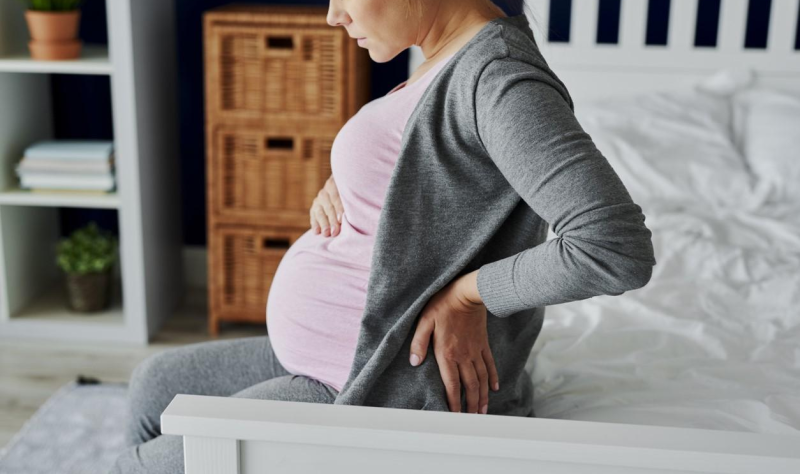Travel: List of EU Countries Keeping in Place COVID Restrictions in June & Entry Rules Explained

After taking into account the low infection rates and with the summer season being just weeks away, the majority of European Union and European Economic Area countries have already dropped all of their COVID-19 entry rules.
The list of the EU/EEA countries that have lifted all of their COOVID-related entry rules and now permit restriction-free entry to all travellers regardless of their country of origin is as follows:
- Austria
- Belgium
- Bulgaria
- Czech Republic
- Croatia
- Cyprus
- Denmark
- Greece
- Hungary
- Iceland
- Ireland
- Italy
- Latvia
- Lithuania
- Norway
- Poland
- Romania
- Slovenia
- Sweden
- Switzerland
All of the countries listed above no longer require travellers to present a vaccination, recovery, or test certificate upon their arrival, SchengenVisaInfo.com reports.
This means that travellers can now start planning their summer holidays in these 20 EU/EEA countries without having to worry about COVID-19 restrictions.
While the above-mentioned countries have lifted all of their COVID-19 entry rules for all travellers, the remaining EU/EEA countries continue to keep restrictions in place.
Although they have relaxed some of their measures, the nine countries listed below still require travellers to follow Coronavirus entry rules:
- Estonia
- Finland
- France
- Germany
- Malta
- Netherlands
- Portugal
- Slovakia
- Spain
Below you may find the current COVID entry rules that each of these nine countries apply.
Estonia

Estonia continues to keep in place COVID-19 entry rules for travellers from specific countries. The Estonian authorities explain that all travellers from third countries need to present a vaccination or recovery certificate or a negative test result in order to be permitted entry.
“Coming from third countries: Present a vaccination or recovery certificate or a negative test result. Otherwise, it is mandatory to stay in isolation for seven days. No restrictions to anybody apply in the case of transit, i.e., passing through the territory of the Republic of Estonia.” the statement of Estonia’s official tourist information tourist website, Visit Estonia, reads.
Estonia accepts vaccination certificates provided that the document proves that the holder has completed primary vaccination in the last 270 days or has received a booster shot. As for the recovery and COVID-19 test, Estonia applies the same rules as the other EU countries.
While third-country travellers are still subject to entry rules when reaching Estonia, the latter’s authorities explain that travellers from the EU/EEA as well as those from the United Kingdom do not need to follow any entry rules.
Nationals of EU/EEA and the UK do not need to hold a valid vaccination, recovery, or test certificate upon their arrival, meaning that they are permitted restriction-free entry.
“Coming from Europe: You are welcome to travel to Estonia without any restrictions (no vaccination or recovery certificate, no tests, no isolation),” the tourist website added.
Finland

Differently from Estonia, Finland continues to apply entry rules to all travellers, even to those from the EU/Schengen Area.
Finland currently requires all travellers from the EU/Schengen Area to present a valid vaccination or recovery certificate upon their arrival. EU/Schengen Area travellers who are unable to present one of these two passes can enter Finland by presenting a negative COVID-19 test result too.
On the other hand, stringent rules apply to travellers from third countries. Non-EU travellers are permitted entry to Finland only if they are able to provide a vaccination or recovery certificate.
Finland applies the same rules on the validity period as the majority of other countries. A vaccination certificate is accepted in Finland as long as it proves that the holder has completed primary vaccination in the last nine months or has received a booster shot.
On the other hand, a recovery certificate is only recognised if it proves that the holder recovered from the virus in the last six months.
France

Similar to the two countries mentioned above, France also requires all travellers to meet COVID-19 entry rules.
France currently permits entry to all travellers who meet the entry rules. However, the French authorities apply different rules depending on the country a person is travelling from.
Currently, France categorises countries into two different categories – green and orange category.
France’s green list includes all the EU/EEA countries as well as tens of third countries. Travellers reaching France from a green-listed country are permitted entry provided that they present a vaccination, recovery, or test certificate.
In contrast, slightly stricter rules apply to those entering France from an orange-listed country. Fully vaccinated and recovered travellers from orange-listed countries are permitted restriction-free entry, whereas those who have not been vaccinated or recovered need to present a negative COVID-19 test result as well as a compelling reason to justify the need to enter France.
>> France Travel: Current COVID-19 Entry Rules Explained
Germany

Despite facilitating some of its rules, Germany still continues to require all travellers to meet entry rules.
According to the German Federal Foreign Office, all persons over the age of 12 are required to present a vaccination, recovery, or test certificate upon their entry.
“Every person over the age of 12 is obliged to carry proof of their COVID‑19 status when entering Germany. Persons over the age of 12 must therefore have a negative test result or proof of recovery or vaccination,” the statement of the Office reads.
Those who are unable to present one of the above-mentioned passes need to follow additional rules.
Germany was expected o facilitate its entry rules for incoming travellers by the end of April. However, the authorities decided to extend them for an undetermined period.
>> Travelling to Germany: Current COVID Entry Rules Explained
Malta

Malta has just recently facilitated its entry rules. However, the country still requires all travellers to hold valid COVID-19 proof upon their arrival.
All travellers, regardless of their country of origin, are required to present a COVID Certificate – a vaccination, recovery, or test certificate – when travelling to Malta.
Those who present one of the above-mentioned passes are exempt from the requirement to follow additional rules.
Currently, children over the age of six are also required to present COVID proof when entering Malta. Nonetheless, the authorities have announced that starting from June 6, children under the age of 12 will no longer be required to present proof, meaning that they will be permitted restriction-free entry.
>> Malta to Scrap Test Requirement for Minors From June 6
Netherlands

The Netherlands continues to keep in place entry rules for all travellers from third countries. Non-EU travellers need to present a vaccination or recovery certificate in order to be permitted entry to the Netherlands. Those who are unable to present one of the passes are currently banned.
Conversely, the Netherlands has already lifted all of its entry rules for travellers from the EU/EEA. Travellers from the EU/EEA can enter the Netherlands restriction-free regardless of their vaccination status. This means that they do not need to present a recovery or vaccination certificate or a negative COVID-19 test taken recently.
Portugal

Portugal updated its entry rules earlier in April. However, the country still requires all travellers to follow COVID entry rules.
According to the official travel portal of Portugal, Visit Portugal, all travellers must present a valid vaccination, recovery, or test certificate.
Nonetheless, travellers should make sure to check what kind of rules apply to them depending on their country of origin as Portugal does not recognises COVID passes of all countries.
Currently, Portugal recognises all COVID certificates issued in EU countries. In addition, passes issued in tens of other third countries are also recognised.
Similar to mainland Portugal, the Azores also require travellers to present COVID proof on their arrival. In contrast, Madeira has already lifted all of its rules. All travellers are permitted restriction-free entry to Madeira.
Slovakia

Just like the countries above, Slovakia continues to keep in place COVID-19 entry rules. Currently, all travellers are required to provide a vaccination or recovery certificate. Special categories of travellers can also enter by only presenting a negative test.
The Slovak authorities noted that travellers who do not hold the required COVID documentation could also enter the country. However, they are required to follow additional measures.
>> Travel: Slovakia Lifts Pre-Entry COVID Registration, Quarantine & Face Mask Requirements
Spain

Despite being one of the most popular destinations, Spain still keeps in place COVID rules. All travellers, regardless if they are reaching Spain from an EU or third country, are required to present a valid vaccination, recovery, or test certificate to be permitted entry.
Just like the other countries, Spain also applies validity rules. A vaccination certificate is recognised upon arrival in Spain if it proves that the person holding it has completed primary vaccination in the last nine months or received an additional vaccine dose.
A recovery pass is recognised if it proves that the holder recovered from the virus in the last 180 days, whereas the PCR test must be taken within 72 hours before arrival, and the rapid antigen test must be taken within 24 hours before arrival in Spain.
>> Spain Lifts Entry Ban for Non-Vaccinated Travellers From Non-EU Countries
Even though the countries mentioned above keep in place entry rules, they have already lifted the majority of their domestic COVID-19 restrictions. Travellers can now access different public places and events without being required to hold a valid COVID-19 Certificate.
Additionally, the requirement to wear a face mask in public places has also been dropped.
>> ETC: More Tourists to Visit Europe This Year as COVID-19 Restrictions Lift



